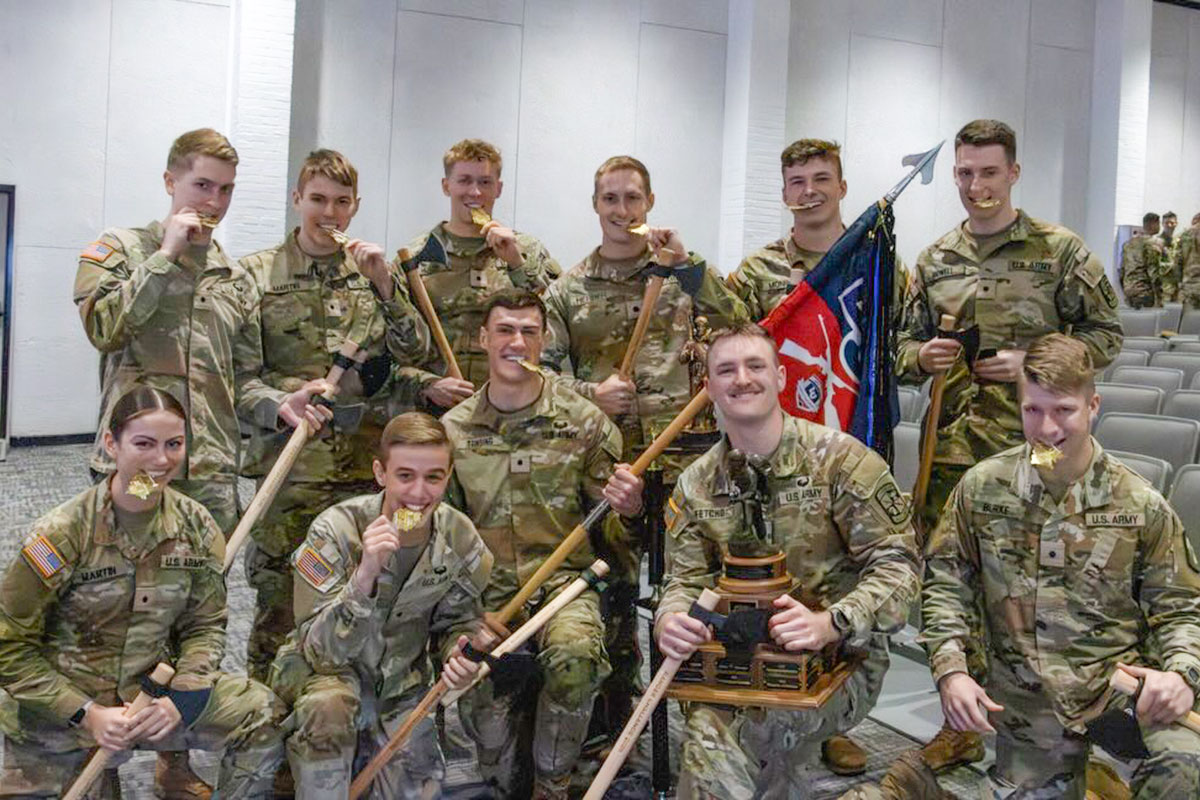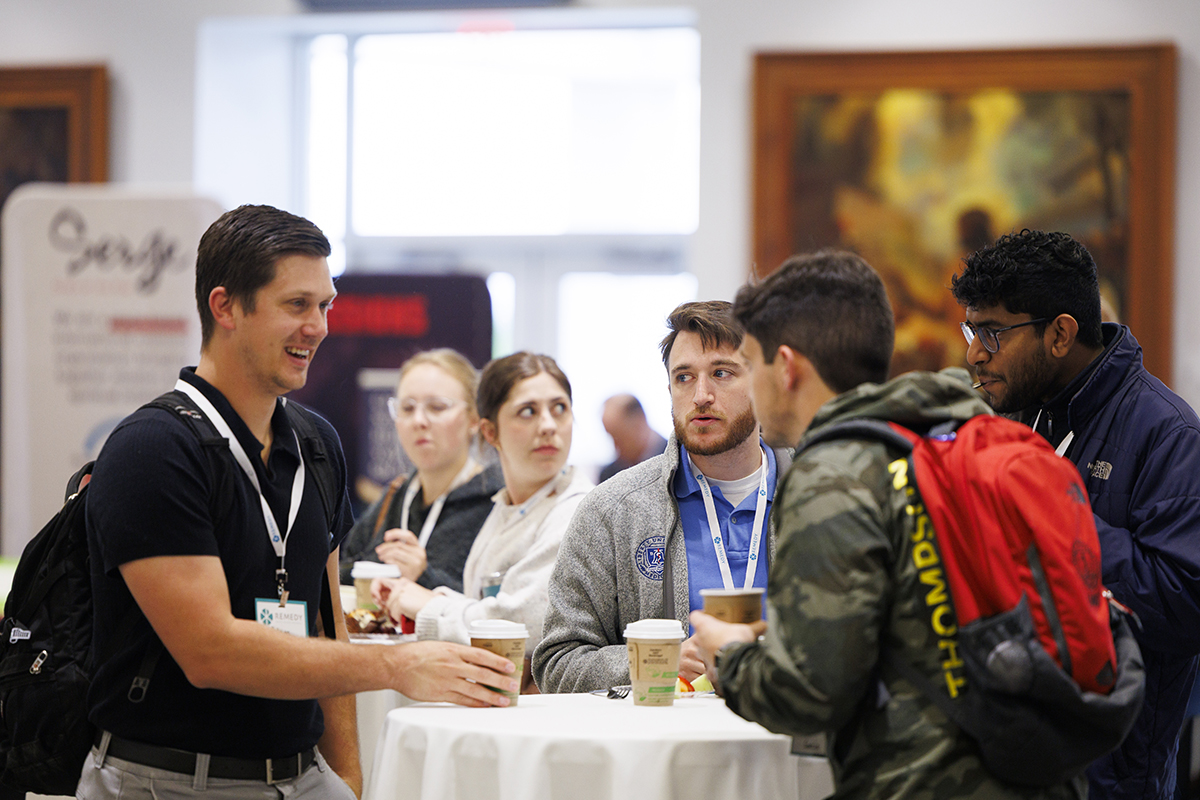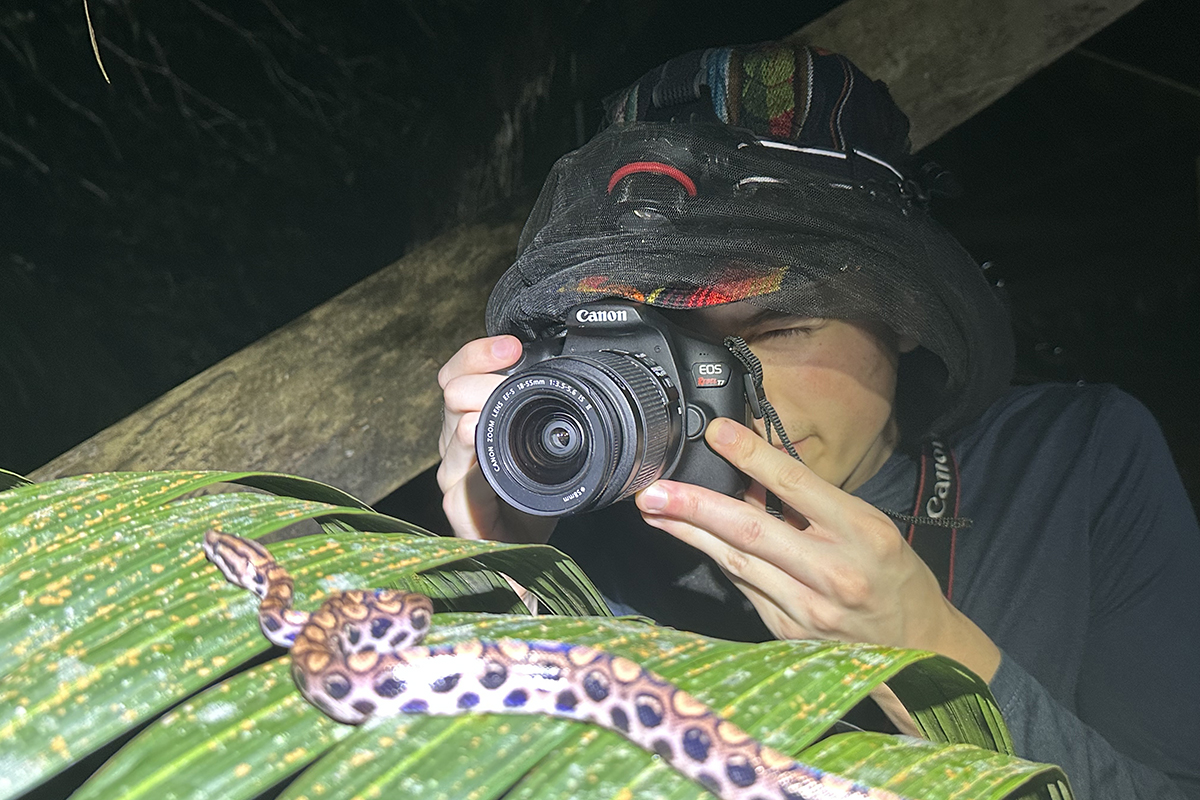High-level mechanical engineering research group explores advancements in fluid dynamics
April 29, 2025 : By Ted Allen - Office of Communications & Public Engagement

A group of Liberty University mechanical engineering students pursuing bachelor’s, master’s, and Ph.D. degrees through the School of Engineering is conducting research in fluid dynamics — the study of the movement of liquids, gases, and solid particles and how they interact with their surrounding environment — to advance technological applications ranging from blood circulation, oxygen respiration, and brain injury therapy to internal combustion engines and nuclear reactors.
The F.L.U.I.D. group (which stands for Flow at Liberty University for Innovation & Design) carries out a mission to “maximize Christ’s glory by earning recognition in providing timely, rigorous, and viable computational fluid dynamics analyses,” according to the website. The group, which began in 2019, conducts research for external companies out of Liberty’s CERE building, led by School of Engineering Professor Wayne Strasser, P.E., who serves as the faculty advisor and research mentor.
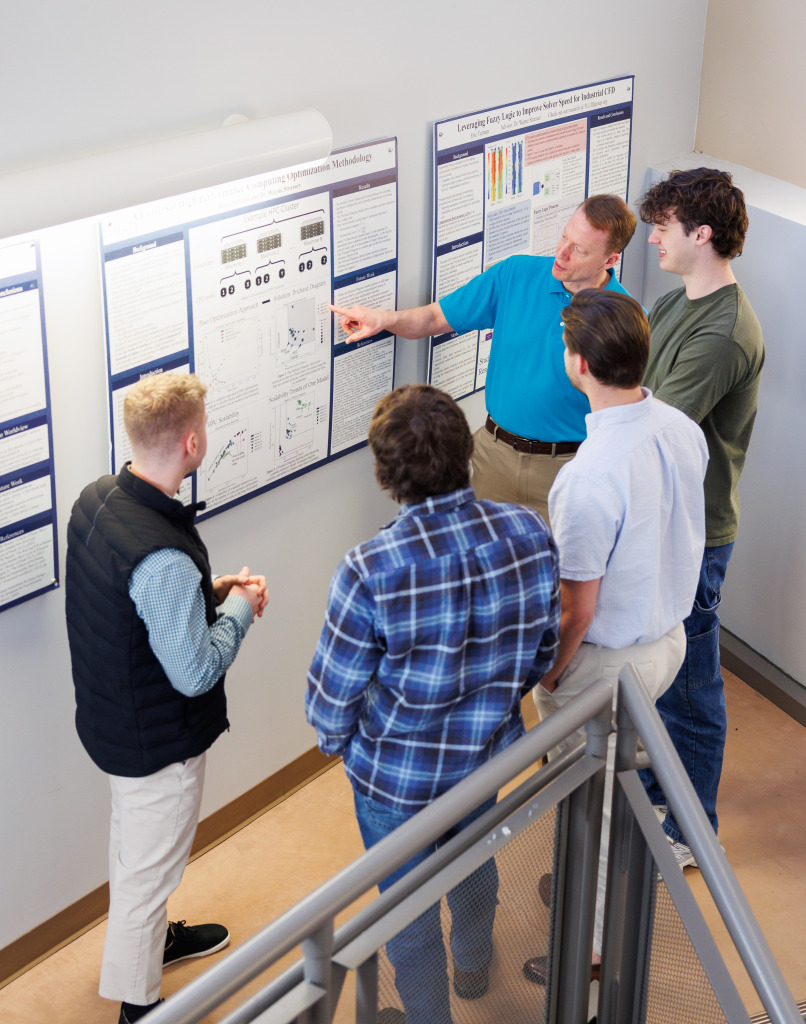
“The F.L.U.I.D. group is made up of brilliant graduate students from all over the world, along with dozens of talented undergraduates (engineering and otherwise) from right here at LU,” Strasser said. “In the last year, we have presented our work at international conferences, participated in internships, won awards, and published papers in leading fluid dynamics journals. In doing so, we have advanced humanity’s understanding of key fluids-related topics, such as how fuels break apart in rocket engines, how to prevent a chemical reactor from exploding, why small flaps on sharkskin help sharks maneuver, and how to design medical devices to help us breathe.”
He is currently coordinating the work of four Ph.D. students funded by research grants through outside companies: Elijah Yoder (’22) with Tasnee, a Saudi Arabian company doing chemical reactor design; Ryan Learn (’24), who is working on a different reactor design for Westlake Chemical Corporation; Robert Kacinski (’21) with medical device manufacturer Vapotherm; and Kent Gingerich (’24), who is parametrically studying the fluid dynamic properties of shark skin as part of the group’s biomimetics research. Gingerich also helps a Lynchburg-based organic cosmetics company with crystallization consistency as well as a plastics recycling startup.
Two other students, Newton Kara and Caleb Miller, are expected to join the group this summer. An entire list of team members is available on the website.
Strasser said God’s majestic purposeful creation involves intricate fluid physics in everything from waterfalls and rivers to hurricanes and erupting volcanos. These flows inherently involve complex interplay between the multiple phases — liquids, gases, and solid particles. Studying these interactions has important applications to our everyday lives and bodies, from medicine to nearly every industry, including chemical, energy production, transportation, and food distribution.
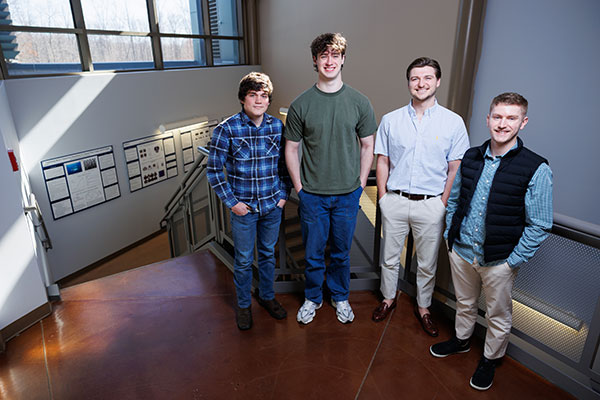
“Within these mixtures of phases are intricate tug-of-war challenges between forces, such as surface tension, gravity, and pressure. Our research is focused on understanding these interactions, harnessing their benefits, and managing their dangers for these industries. In the F.L.U.I.D. group, we answer these questions as we dive deeply into the Creator’s physics.”
A major challenge in the engineering field is quantifying the force interactions between phases as they rapidly interact.
“In an industry setting where time is money, we do not have the opportunity to physically test and experiment with every possible phase scenario,” Strasser said. “Therefore, we must implement computer models which allow us to virtually explore behavior that the Master Designer has built into matter.”
The field is more specifically called Computational Fluid Dynamics, or CFD, and Strasser’s students use it to perform calculations and analyze and solve problems involving fluid mechanics. New computers will accelerate this research and enable more graduate and undergraduate students to engage in it.
“We want to focus on raising the esteem of the School of Engineering while giving it Gospel credibility,” Strasser said. “That was why I came here, to think critically and prove that Liberty is not only a liberal arts institution made up of strong believers who love the Lord …. but to uphold the (reputation) of Liberty as a technical leader.”
Before beginning his career at Liberty in 2019, Strasser — who received his B.S. in chemical engineering and M.S. in mechanical engineering degrees at Clemson and his Ph.D. at Virginia Tech — worked in industry for 25 years, mostly with Eastman Chemical Company, and as a research consultant for 12 years with Westlake. He was named an Associate Editor of the Year for the American Society of Mechanical Engineers’ (ASME) Journal of Fluids Engineering in 2023 and the Associate Editor of the Year for ASME’s Journal of Solar Energy Engineering in 2024.
Recent master’s and Ph.D. graduates who were part of the F.L.U.I.D. group have transitioned seamlessly into their professional fields.
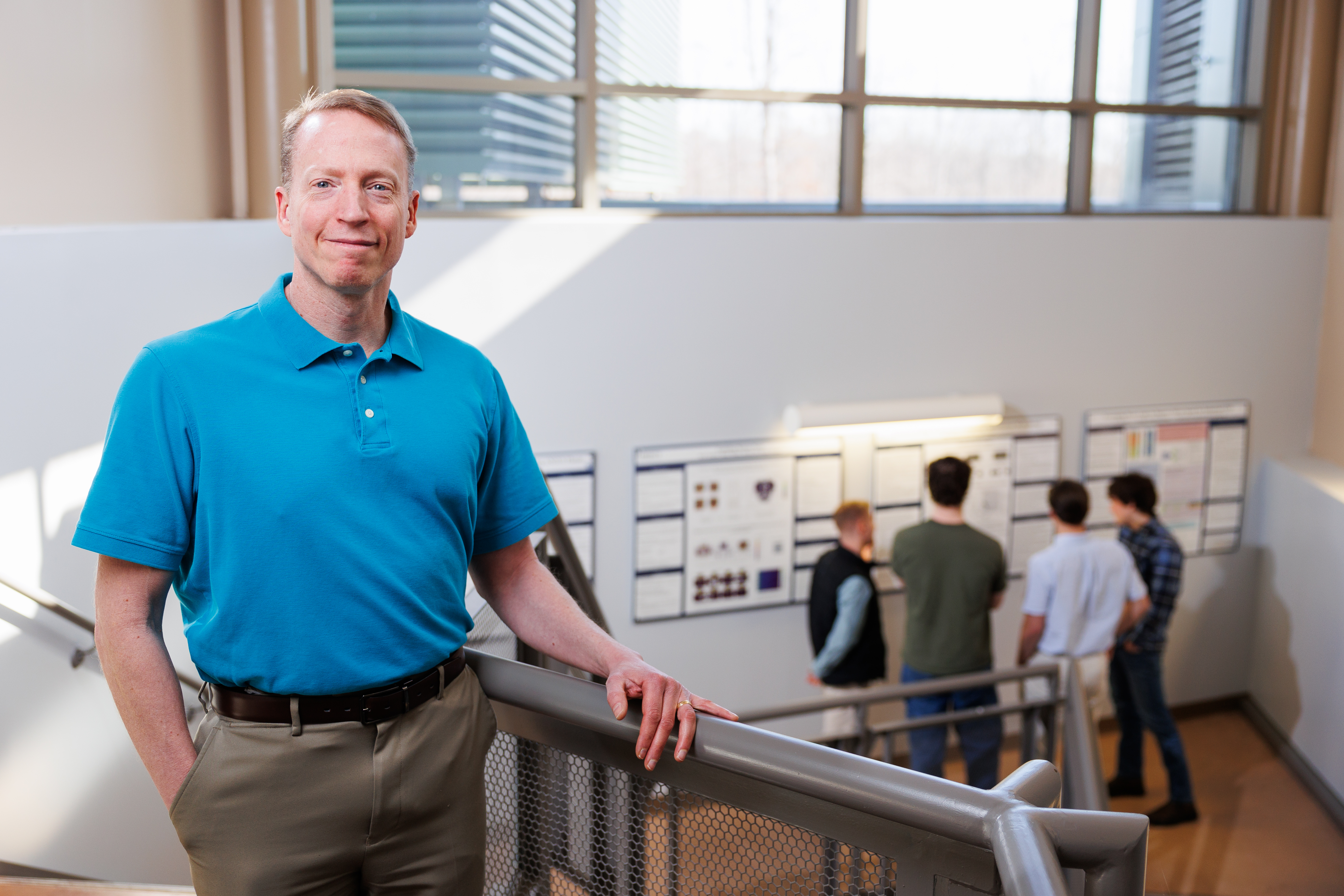
Eric Turman, who earned his B.S. in Mechanical Engineering in 2020 and M.S. in Engineering in 2022, was one of the founding members of the school’s Formula SAE competition team. He has worked for General Motors for the past three years, currently as an advanced propulsion engineer on the drive systems and motors team developing the next generation of drive units and hybrid transmissions.
Turman conducted research for two years under Strasser’s supervision for Westlake , analyzing its industrial chemical reactor to prevent explosions as it reached extremely high temperatures and pressures. (Yoder continues that research now.)
“We were running virtual models looking at the thermal development and chemical reactions happening inside to try to predict when those (explosions) were going to happen,” Turman said. “We were running fluid studies of what was going on inside the reactor to understand how different chemicals were mixing and reacting with each other.”
He said his research at Liberty was “a good learning process of trying to understand a problem intricately and then … to figure out a solution.”
“I got a good understanding when I was working under Wayne (Strasser) of ‘How do you take a really complex topic and then figure out how to make it make sense (and) make others understand and see the value in it?’”
Turman is based out of the Warren Tech Center, GM’s main engineering division in Detroit with 22,000 employees. As a system architect, he organizes efforts between the thermal, motor, structures, and gear teams to build and test experimental electric powertrains, so clear communication is vital.

He has enjoyed being on the front lines of the electric versus gas combustion engine debate.
“It’s a fun time to be working because there’s so much unknown and so much change, a lot of opportunity to make new leads, new bounds, get patents,” Turman said. “We’re looking at motors and drive units that are newer to the auto industry. Are EVs (electric vehicles) the way to go forward? Do we need to go hybrids? How do you supplement the two? There’s a really big shift, (and) it’s very much trying to find the next silver bullet to make EVs profitable and make the best hybrids. You’re ultimately trying to reduce the cost and increase the range of electric vehicles and then meeting all of the different government regulations.”
Reid Prichard (’19, ’24), who worked with Framatome, Microsoft Azur, and Vapotherm while pursuing his Ph.D. at Liberty, started working last summer at BWXT Advanced Technologies’ headquarters in Lynchburg, Va., as a thermal hydraulics core design engineer for nuclear reactors.
“I began to understand in undergrad the type of work that I wanted to do absolutely requires a graduate degree,” Prichard said. “The classes taught by Dr. Strasser all gave me invaluable formal knowledge and developed the necessary research skills and problem-solving ability.I couldn’t be working on the cutting edge of advanced reactor design without the Ph.D.”
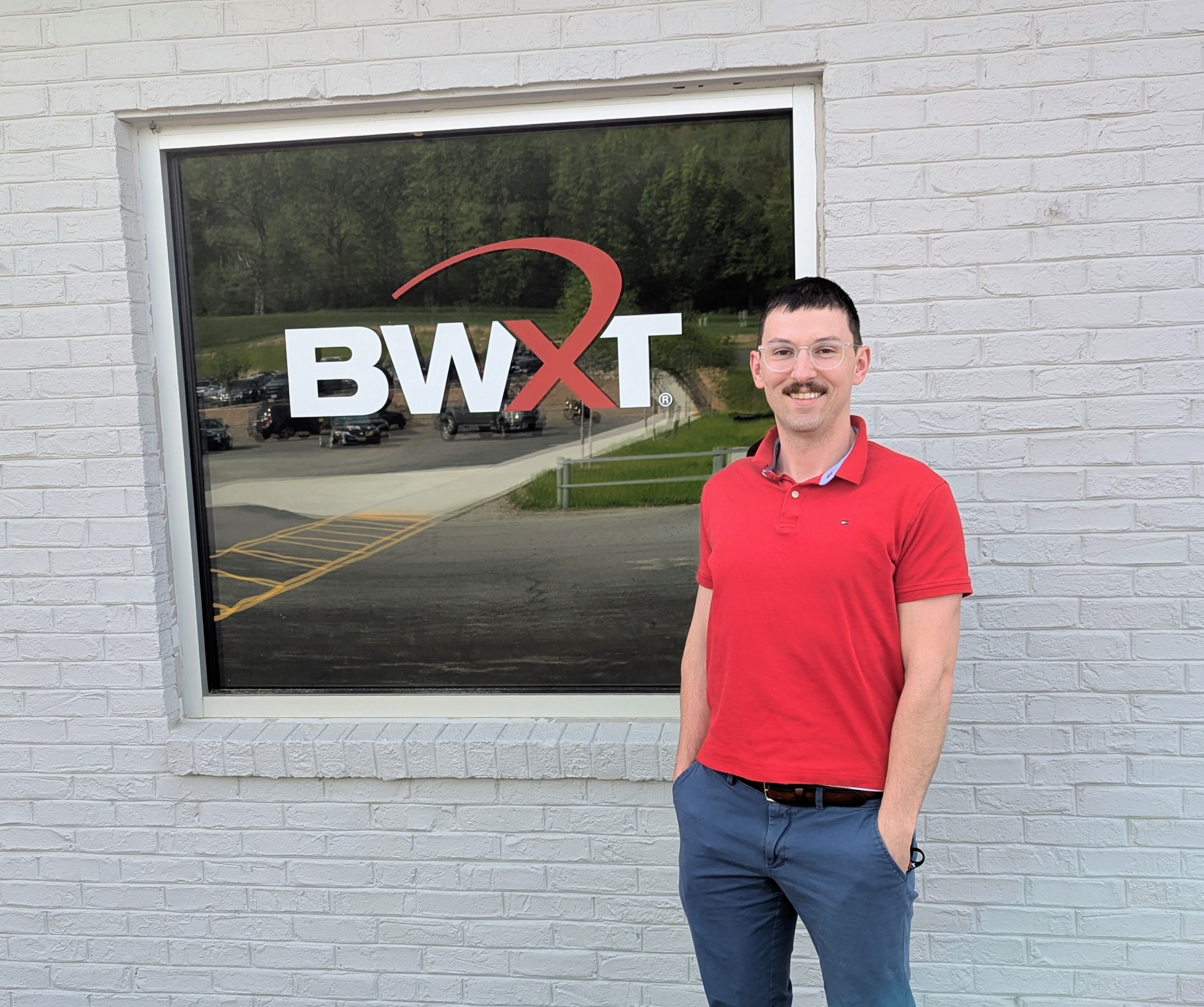
Prichard said working for BWXT was not initially on his radar because of how bogged down by regulatory burdens he perceived the nuclear industry to be.
However, his perceptions were not reality due to the nature of Advanced Technologies’ work with the Department of Energy, Department of Defense, and NASA.
“I love working here,” he said. “I am working on nuclear thermal propulsion, which passes propellant through a microreactor core to produce thrust, yielding substantial efficiency benefits compared to a conventional chemical rocket.”
Prichard said Strasser challenged him to stretch his creative-thinking and problem-solving abilities.
“Liberty’s Ph.D. program is a challenging one and you have to work hard, and it absolutely pays off,” he said. “It really prepared me for success at BWXT, and I don’t think I would be as self-driven and confident to take the reins and start taking on big projects without it.”
Daniel Wilson, who earned his Ph.D. from Liberty in May 2023, had the opportunity to help teach a few courses under Strasser’s tutelage, including a fluid dynamics class and a fluids lab. Now, in his current position at Clemson University, he teaches or coordinates both of those courses.
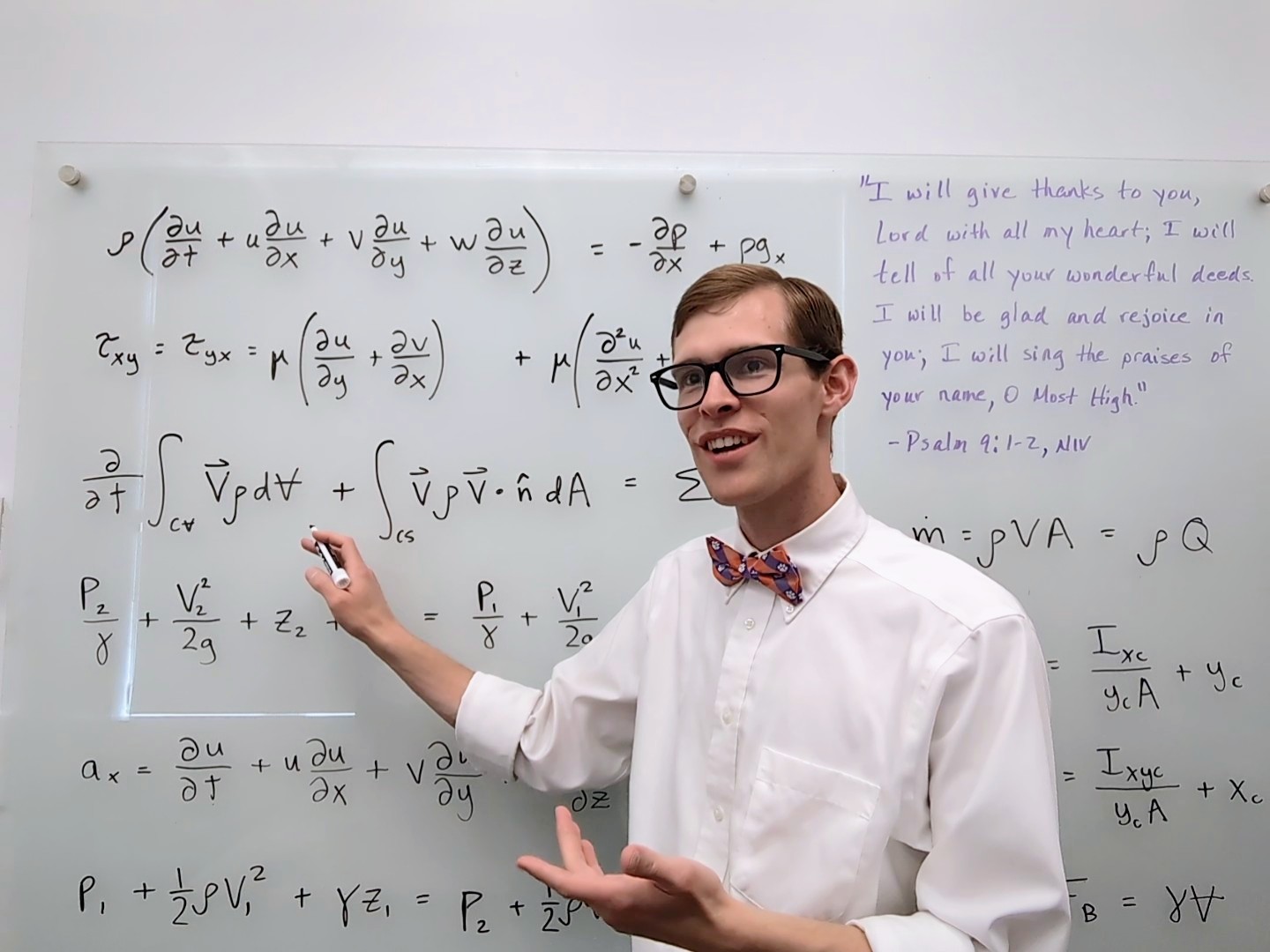
“All the research, computational fluid dynamics, multi-phase flow simulations, and what all my colleagues were doing (at Liberty), I was able to bring that to advising competition teams and into the classroom (at Clemson),” Wilson said. “I developed a CFD honors project for some students in my fluid dynamics class based off the training done with the F.L.U.I.D. group.”
Wilson said Strasser’s mentorship throughout the Ph.D. process was foundational.
“He is a really invested mentor who poured into me as an individual, to help me grow as a researcher, grow as a teacher, as a Christian, a follower of Christ, and as someone who’s trying to advance God’s Kingdom. I now manage quite a few graduate teaching assistants and try to help them to grow as holistic individuals, as engineers, as friends.”
